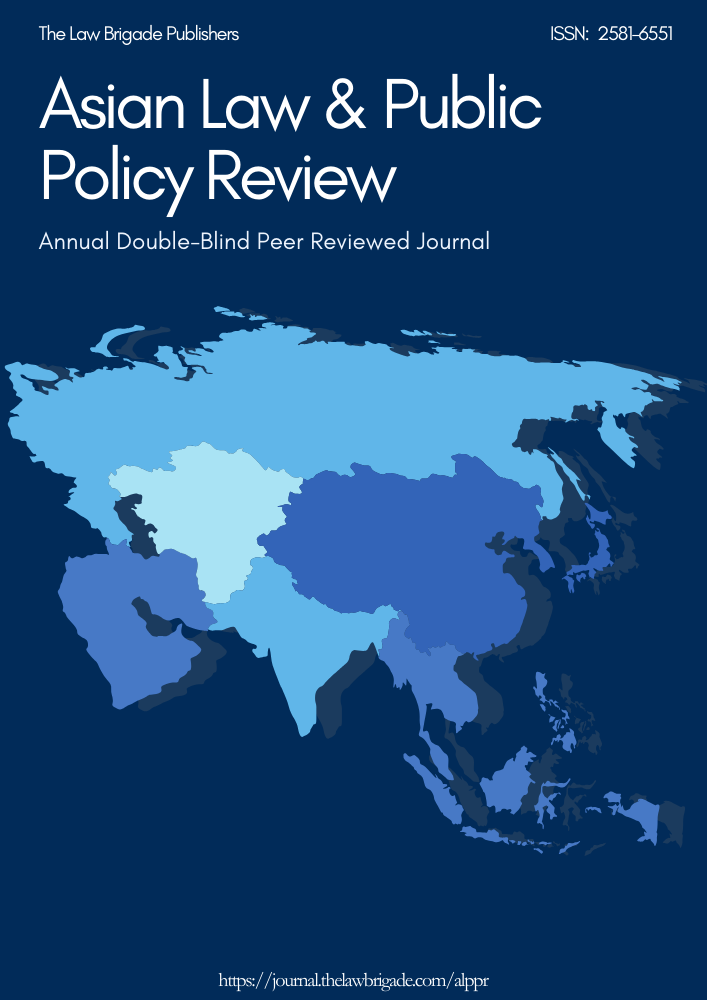Judicial Appointments
Keywords:
judiciary, Constitution of India, Role of Judiciary, governmentAbstract
The judiciary is the third organ of the government whose role is to apply the laws to specific cases and to settle the disputes. So when the judges give out their judgment the real meaning of law is defined. The court has the right to interpret the constitution. “From the citizen’s point of view, Judiciary is the most important organ of the government because it acts as their protector against the possible excesses of legislative and executive organs. Role of Judiciary as the guardian-protector of the constitution and the fundamental rights of the people makes it more respectable than other two organs”. “Judiciary is the repository of public faith. It is the trustee of the people. After knocking at all doors, when one fails to get his grievance redressed, judiciary is the only hope which comes to one's rescue. It is the only temple worshipped by the citizens of the country regardless of religion, caste, creed or place of birth.” So the people have very much trust on the judiciary and they are in the hope that if no one listens and if we knock the doors of judiciary then they will be there always to give the justice. Because the only ray of hope of the citizens is the judiciary. The judiciary is the guardian of Constitution of India and Fundamental rights of the citizens. The Constitution of Indian is a single integrated system with District Court at the lower level High Court at the middle level and Supreme Court at the apex.
Downloads
References
1. K.K Ghai, “Judiciary: Functions, Importance and an Essential Quality of Judiciary”
2. Jstor
3. Hein Online
4. Shodganga
5. Sarkar Ali Akkas, Appointment of Judges: A Key Issue of Judicial Independence, Bond
Law Review, Volume 16, Issue 2.
6. Hugh Corder, ‘Seeking Social Justice? Judicial Independence and Responsiveness in a
Changing South Africa’, in Russel PH and O’Brien DM (ed) Judicial Independence in
the Age of Democracy: Critical perspective from around the world
Downloads
Published
Issue
Section
License

This work is licensed under a Creative Commons Attribution-NonCommercial-ShareAlike 4.0 International License.
License Terms
Ownership and Licensing:
Authors of research papers submitted to any journal published by The Law Brigade Publishers retain the copyright of their work while granting the journal specific rights. Authors maintain ownership of the copyright and grant the journal the right of first publication. Simultaneously, authors agree to license their research papers under the Creative Commons Attribution-ShareAlike 4.0 International (CC BY-SA 4.0) License.
License Permissions:
Under the CC BY-SA 4.0 License, others are permitted to share and adapt the work, even for commercial purposes, provided that appropriate attribution is given to the authors, and acknowledgment is made of the initial publication by The Law Brigade Publishers. This license encourages the broad dissemination and reuse of research papers while ensuring that the original work is properly credited.
Additional Distribution Arrangements:
Authors are free to enter into separate, non-exclusive contractual arrangements for distributing the published version of the work (e.g., posting it to institutional repositories or publishing it in books), provided that the original publication by The Law Brigade Publishers is acknowledged.
Online Posting:
Authors are encouraged to share their work online (e.g., in institutional repositories or on personal websites) both prior to submission and after publication. This practice can facilitate productive exchanges and increase the visibility and citation of the work.
Responsibility and Liability:
Authors are responsible for ensuring that their submitted research papers do not infringe on the copyright, privacy, or other rights of third parties. The Law Brigade Publishers disclaims any liability for any copyright infringement or violation of third-party rights within the submitted research papers.


